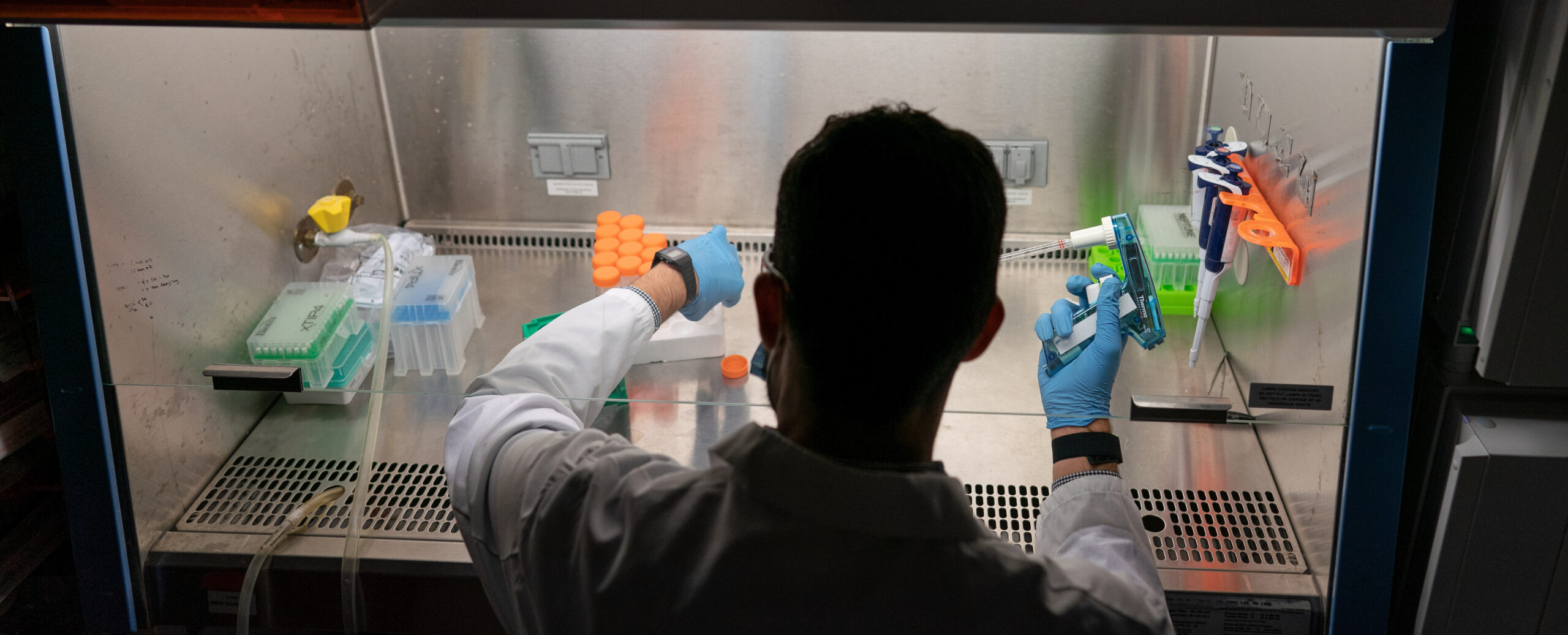
February 18, 2023
Helmsley-supported RFPs from ENDIA and GPPAD offer rare access to samples and data from children at high risk of developing T1D
Insulin and technologies like continuous glucose monitors and insulin pumps mean that T1D can be managed. But even for those with access to the best available care, T1D requires daily complex decision making around insulin dosing and diet and carries significant risks of serious health complications. This is why an important part of the Helmsley T1D Program’s strategy is research into preventing or delaying disease development.
My work as a Program Officer is dedicated to supporting research teams focused on prevention, including two study teams with recently issued RFPs that will give access to precious biosamples and data from their studies: the Global Platform for the Prevention of Autoimmune Diabetes (GPPAD) and the Environmental Determinants of Islet Autoimmunity (ENDIA). GPPAD is a clinical trial platform that enrolls young children at high risk of developing the disease, while the ENDIA group studies innate and environmental factors that may contribute to T1D development. Both groups are seeking a better understanding of the biology of T1D, which may point to new therapeutic strategies for prevention.
Initiation of T1D-related autoimmunity appears to result from a combination of genetic risk and environmental exposures, like specific viral infections. However, much remains to be understood in how these interactions lead to T1D — knowledge which can only be gained through studying human disease. This creates challenges to progress as human studies are resource-intensive, and access to samples and data from these studies can be limited. We are therefore proud to support the GPPAD and ENDIA teams’ RFPs, each aimed at improving understanding of T1D pathogenesis through sharing of biosamples and data. Notably, both groups are seeking to build new partnerships and expand their current networks.
Read more about these groups and RFPs below:
GPPAD aims to carry out newborn screening in the general population, to identify infants at high genetic risk of developing T1D, and to offer them participation in trials to prevent disease initiation. Through centers in Germany, the UK, Poland, Sweden, and Belgium, GPPAD has screened over 400,000 newborns and enrolled over 1,700 eligible children into primary prevention trials to date.
The Primary Oral Insulin Trial (POInT), GPPAD’s first randomized controlled clinical trial, is designed to determine if administration of high dose oral insulin can prevent the initiation of T1D-related autoimmunity in young children at high genetic risk. GPPAD completed enrollment of POInT in early 2021, with 1,050 participants enrolled, 91 of whom have developed type 1 diabetes-related autoantibodies. In addition to biosamples collected for trial purposes, an array of additional biosamples (serum, plasma, RNA, whole blood, PBMC, stool), which can be connected to relevant clinical data, are collected at multiple timepoints from 90% of POInT participants and biobanked.
GPPAD seeks new collaborators outside of its current network of investigators to carry out projects using POInT biosamples and clinical data collected during the first two years of life. This timeframe encompasses a peak in incidence of islet autoimmunity in genetically susceptible children and likely a critical window for disease initiation. In addition to biosamples, successful applicants will be provided relevant clinical and metadata, support from the GPPAD Coordination Center (e.g., to answer questions around trial protocol or sample processing and access to other data), and funds for project activities.
More information about the GPPAD RFP here
The Environmental Determinants of Islet Autoimmunity (ENDIA) Study Group seeks new collaborations for investigative research on the etiology and pathogenesis of T1D using data and biosamples collected from the ENDIA cohort. This funding opportunity is intended to create collaboration among leading experts around the world to answer important unknowns about disease mechanisms with the long-term aim of T1D prevention. Applications from investigators whose expertise lie outside of T1D are encouraged.
In 2019, ENDIA completed recruitment of 1,473 children born in Australia who have an immediate relative with T1D. In addition to screening for islet autoimmunity, ENDIA has been collecting a rich and diverse set of biosamples and clinical data from the children starting from pregnancy through to early childhood up until 10 years of age.
A nested case-control (NCC) subcohort comprising the first 54 children who developed persistent islet autoimmunity (single or multiple islet autoantibodies) has been established to investigate preliminary associations between environmental and genetic factors that contribute to the development of islet autoantibodies in early childhood. Several investigations are already underway including the analyses of the gut microbiome and metaproteome, gut and respiratory virome, circulatory cytokines, proteome, lipidome, metabolome, glycome and miRNAs, immune cell phenotyping, function, and genomics.
The main objective of this RFP is to support collaborations with ENDIA investigators to accelerate understanding of T1D etiology and pathogenesis during gestation and early childhood. This RFP seeks new collaborators outside of the current network of ENDIA investigators to carry out research using data and biosamples from ENDIA. Successful applicants are expected to engage with the ENDIA program in a close collaborative and productive way.
The JDRF Australian Type 1 Diabetes Clinical Research Network (T1DCRN) and The Leona M. and Harry B. Helmsley Charitable Trust (Helmsley) have supported ENDIA since 2015. The partnership is committed to advancing the development of T1D prevention strategies to positively impact the lives of people with T1D.
More information about the ENDIA RFP here